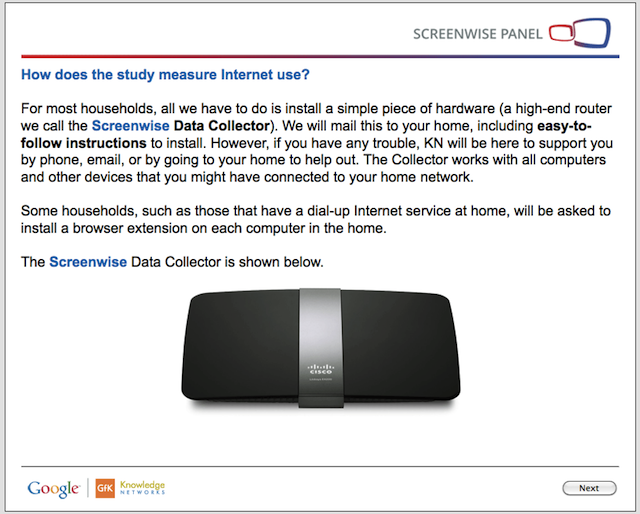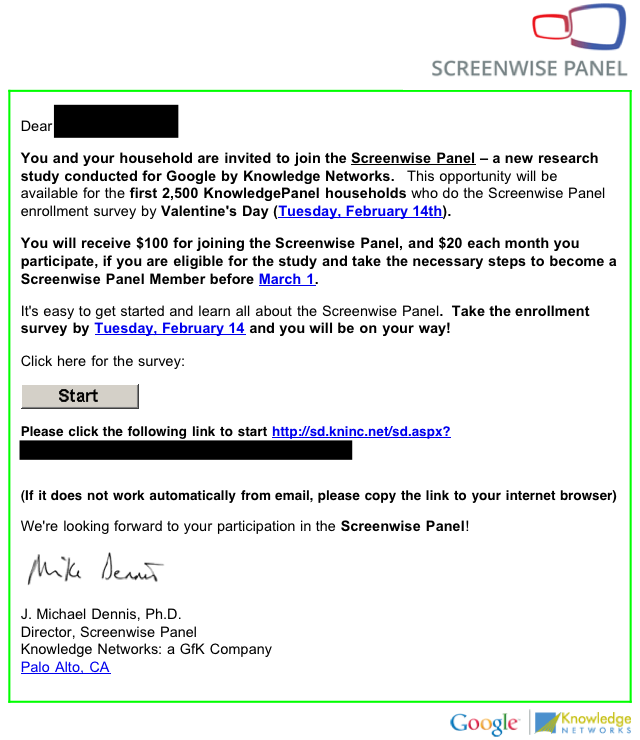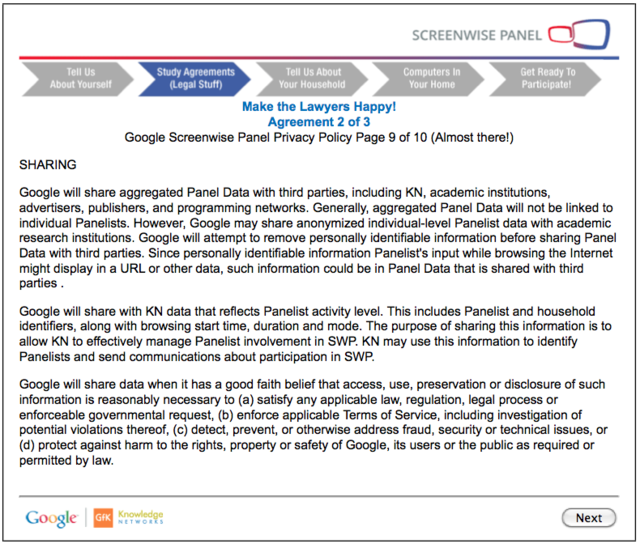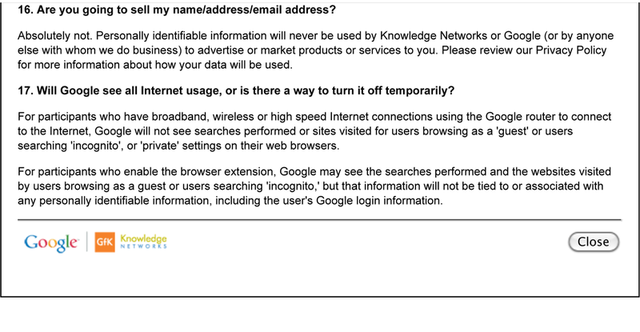
Google is working to collect information about Internet users that it can't get from just monitoring its own browser, services, and Android devices. The company has set up a new program called Screenwise, which offers money to users who install a black box on their home network to "measure Internet use." A smaller amount of money will go to those who install a browser extension on their computers that will do the same thing.
Google quietly started up the Screenwise data collection program Tuesday night, taking the e-mail addresses of people who are interested in "add[ing] a browser extension that will share with Google the sites you visit and how you use them." For their participation, Google offers the extension users a $5 Amazon gift card for signing up and another $5 gift card for every three months they stay with the program. Less publicly, Google also started looking for people who would install a piece of hardware on their network to do more extensive monitoring.

Google has offered the box to members of Knowledge Networks, a company that pays users small amounts to participate in surveys and data collection by other companies. A tip from a Knowledge Network user who wishes to remain anonymous included the screenshots in this article, which show the signup process, as well as shots of the legal agreements presented to Knowledge Networks participants.
If KN users opt to participate, they receive a black box, called the Screenwise Data Collector. The box sits on users' home networks, acting as a router and WiFi access point that monitors the traffic of connected devices. According to the program's FAQ, it captures a "household's web access," but doesn't collect information from "other devices" in the house, such as game consoles.
Google is offering $100 just for users to sign up, and an additional $20 for every month the device is installed for up to a year's time. The data-collecting box has a supposed value of $150, and Google was accepting the first 2,500 Knowledge Networks members who signed up for the program.

According to legal agreements displayed during signup, Google will share the aggregated data with third parties, including "academic institutions, advertisers, publishers, and programming networks." The agreement notes that the data collected will be personally identifiable, with some exceptions: https addresses and private browsing windows of people using the router will not be tracked. The browser extension, however, will track private or incognito browsing, though the data will not be personally identifiable. For all other collected data, Google will "attempt" to remove that identifiable info before sharing it—no guarantees, though.
The company did not respond to requests for comment on either the Screenwise browser extension, Cisco router, or the program in general.
The Screenwise program and data collecting box have appeared shortly after Google announced broad changes to its privacy policy, changes that allow the company to use data collected from all its services to help target ads.

The new privacy policy affords Google a look well beyond what people are Google-searching for. Everything done on Android phones, Chrome browsers (outside Incognito windows), YouTube, docs, calendars, and Blogger blogs are now prime to be culled and integrated into a single profile, held internally at Google. That profile will facilitate more tightly targeted ads and demographics than the company can currently deliver.
With its own services fully optimized for data collection, the router-based Screenwise program looks like it will let Google get its hands on everything else that is done on the Internet, too. That includes use of competing services, as well as metadata, like how much and how often people use those services and the Internet in general. The program will also allow Google to collect data in markets that it plans to enter in the future, or even data it's not interested in but others might be. The most interesting entity that may share in the information is the "programming networks" Google mentions above.
We can only speculate about the possible lucrative uses for this data. For instance, Google could give all the info about how these people use Netflix and Hulu to TV networks. It could tell every online retailer about every shopping cart the users ever abandon. It could tell Spotify exactly how users use competing services like Rdio or Grooveshark, and vice versa. The business prospects of all that raw information are huge.
The company is laying out the details of this program pretty plainly to anyone who reads the legal agreements. It's easy to forget that Google is one of the biggest advertising companies in the world; Screenwise could be a step toward becoming one of the biggest consumer data companies in the world, too.
Update: A Google spokesperson has given Ars the following statement:
"Like many other web and media companies, we do panel research to help better serve our users by learning more about people's media use, on the web and elsewhere. This panel is one such small project that started near the beginning of the year. Of course, this is completely optional to join. People can choose to participate if it's of interest (or if the gift appeals) and everyone who does participate has complete transparency and control over what Internet use is being included in the panel. People can stay on the panel as long as they'd like, or leave at any time."
reader comments
77